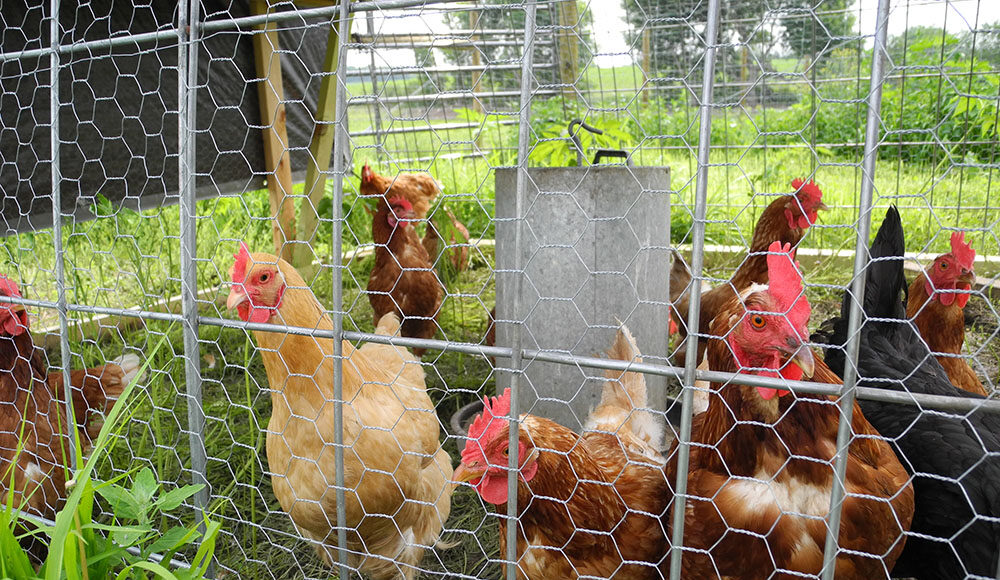Backyard chickens offer a wonderful opportunity to have a fresh supply of eggs right at your doorstep. With the trend of home farming growing in popularity, many people are questioning whether these backyard eggs need refrigeration for storage. Understanding how to properly handle and store eggs is essential for ensuring both safety and quality.

Understanding Egg Bloom
When a hen lays an egg, it is coated with a natural protective layer called the bloom or cuticle. This coating helps to keep bacteria out and moisture in, preserving the freshness of the eggs. It’s important to handle eggs carefully to maintain the integrity of the bloom.
How Long Do Fresh Eggs Last?
Freshly laid eggs can last longer than store-bought eggs if stored properly. Eggs can generally stay fresh for up to one month when kept at room temperature with their bloom intact. However, once washed, the protective bloom is removed, and refrigeration becomes necessary to maintain safety and freshness. Proper storage includes placing them in a cool, dry place or storing them in a refrigerator.
Why Refrigeration Might Be Needed
Whether or not to refrigerate eggs largely depends on your local climate, the condition of the eggs, and personal preference. In warm climates, refrigeration can help prevent spoilage and maintain the eggs’ integrity. Additionally, if you choose to wash your eggs after collecting them, refrigeration becomes a must to prevent bacterial growth.
Factors Influencing Egg Storage
- Climate: Warmer climates may require eggs to be refrigerated sooner than cooler climates.
- Egg Condition: If eggs are cracked or soiled, refrigeration is advisable.
- Consumer Preference: Some people prefer the taste and texture of refrigerated eggs.
Comparing Backyard and Store-Bought Eggs
The main difference between backyard eggs and store-bought eggs lies in their processing. Store-bought eggs are typically washed and must be refrigerated. Backyard eggs, with their bloom intact, can remain at room temperature until washing is deemed necessary. It’s interesting to note the advantages of producing your own eggs, which include knowing exactly how the chickens are cared for and the ability to control their diet.
Handling Dirty Eggs
Sometimes eggs collected from your backyard flock might be dirty and require cleaning. It’s best to clean them with a dry cloth if possible. However, if washing is necessary, ensure they are rinsed briefly with warm water. Allowing them to dry thoroughly before placing them in the refrigerator is recommended. Check out more tips on handling dirty eggs.
Maintaining Egg Freshness
Egg storage isn’t solely about refrigeration. It’s about the conditions in which you keep your eggs. Keeping them in their carton in the refrigerator prevents unwanted odors from affecting their flavor. Similarly, maintaining a consistent, cool temperature without too much fluctuation helps in prolonging their shelf life.
Health Benefits of Eating Fresh Backyard Eggs
Consuming fresh backyard eggs can provide a variety of health benefits thanks to their higher nutritional content compared to some commercially produced eggs. Packed with proteins, vitamins, and healthy fats, these eggs support strong muscle health, boost brain function, and improve eyesight. To delve further into these benefits, consider visiting this nutrition facts page.
Signs of a Healthy Flock
Ensuring your hens are healthy is vital to producing fresh, high-quality eggs. Signs include consistent laying, vibrant plumage, and active behavior. Learn more about keeping your flock healthy and happy.
FAQ Section
Do eggs need to be washed before refrigeration?
It’s generally best to store unwashed eggs at room temperature due to their natural bloom. Wash eggs right before using or if refrigeration is necessary.
Can backyard eggs be stored alongside store-bought eggs?
Yes, they can. If stored in the refrigerator, keep them in their own section or carton to avoid confusion.
What temperature is optimal for egg refrigeration?
The best temperature for storing eggs in the fridge is between 35F and 40F. Make sure your refrigerator maintains a consistent temperature to ensure the best storage conditions for all types of eggs.

Conclusion
Knowing whether backyard eggs need refrigeration depends on several factors, including your climate, personal storage preferences, and your handling practices. By keeping these factors in mind, you can ensure that your eggs stay fresh, nutritious, and safe to eat. Happy egg farming!
This article contains affiliate links. We may earn a commission at no extra cost to you.










